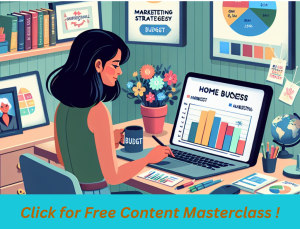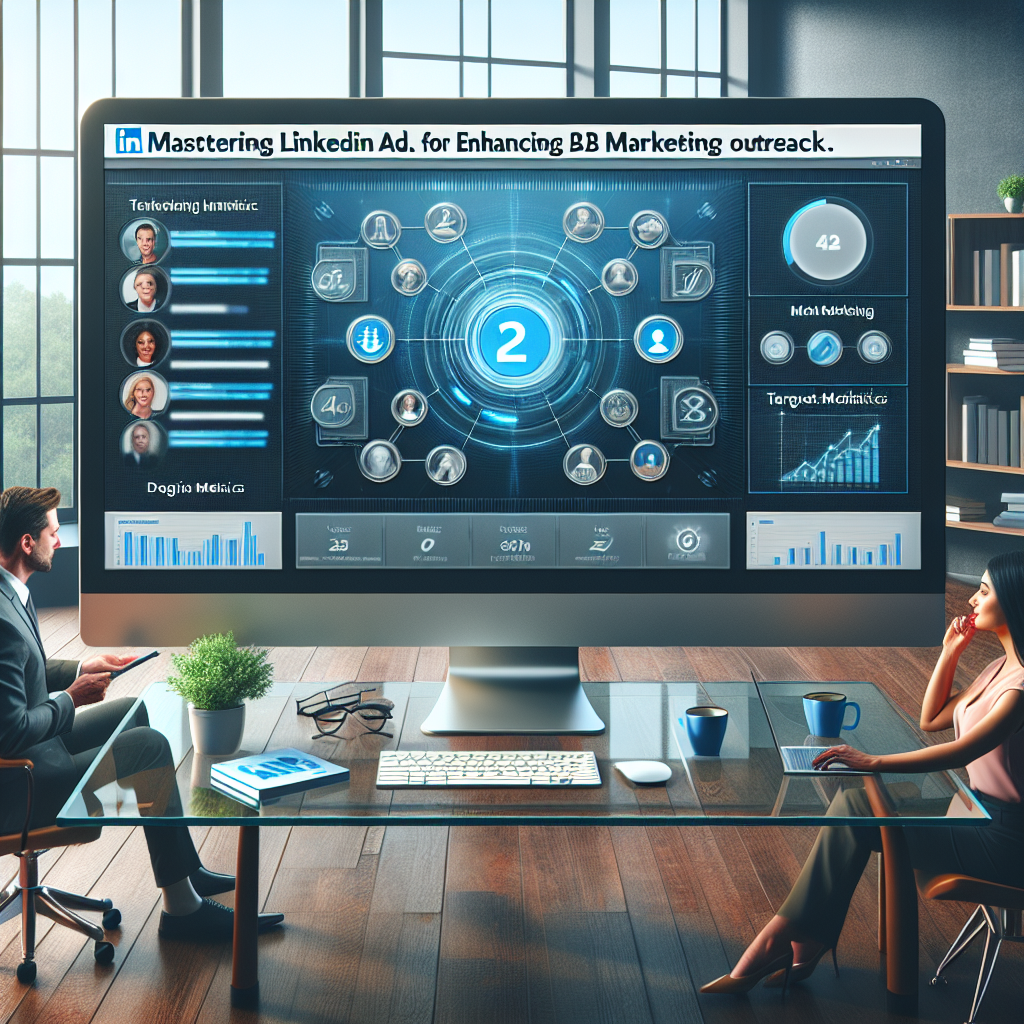
Master LinkedIn Ads to Boost Your B2B Marketing Outreach
- Optimizing LinkedIn Ads for Targeted Audiences
- Creating Compelling Ad Copy that Converts
- Using LinkedIn Analytics for Campaign Improvement
- Leveraging LinkedIn’s Unique Features for Engagement
Optimizing LinkedIn Ads for Targeted Audiences
Understanding Your Audience
It’s crucial to begin with a solid understanding of who your audience actually is. I remember the first time I created an ad campaign, I thought I knew my audience, but boy was I wrong! Diving deep into audience personas helped me tailor my messaging and targeting. You need to dig into their job titles, industries, and even their interests.
The more specific you can be, the better. When I started using LinkedIn’s audience targeting options, I felt like I had unlocked a treasure chest of possibilities. LinkedIn allows you to filter audiences by company size, seniority, skills, and more. This is where magic really happens; knowing your audience better allows you to hit the right chords in your messaging.
Once you have a solid grasp of who you’re speaking to, it’s easier to create ads that resonate with them. Remember, this isn’t just about selling—it’s about connecting.
Choosing the Right Ad Format
LinkedIn offers several ad formats, like Sponsored Content, Message Ads, and LinkedIn Text Ads, and believe me, choosing the right format is just as critical as understanding your audience. Sponsored Content works wonders for showcasing updates or case studies, while Message Ads can drive higher engagement rates when you’re reaching out directly.
From my experience, combining a couple of formats can sometimes yield the best results. For instance, I often launch a Sponsored Content campaign paired with Message Ads—this gives potential clients multiple touchpoints and caters to different preferences.
Additionally, experimenting with different ad formats helps you learn what works best for your audience. I’ve played around with various formats and tracking my results has been a real eye-opener.
Setting a Realistic Budget for Your Campaigns
Budgeting doesn’t need to be a scary term. When you’re first starting out with LinkedIn ads, I suggest setting a modest budget to test the waters. It’s important to allocate funds wisely and focus on key metrics like cost per lead or conversion rate.
I always set aside part of my budget for A/B testing. This approach offers vital insights into what resonates with my audience versus what falls flat. For me, budgeting has evolved from a daunting task to an exciting component of my growth strategy.
Don’t forget that LinkedIn’s ad platform lets you monitor your spending closely, so you’re never in the dark about where your dollars are going.
Creating Compelling Ad Copy that Converts
The Importance of Captivating Headlines
Crafting a killer headline is a skill. Seriously! The headline is the first impression and we all know first impressions matter. Throughout my journey, I’ve learned to make headlines catchy but also clear. A balance between creativity and clarity can draw your audience in, making them want to click on your ad.
I like to think of my headlines as a hook—something to reel people in. Best practices suggest keeping it concise and straightforward, but I sometimes like to add a pinch of emotion or urgency. For instance, instead of “Improve your Marketing,” I would write “Skyrocket Your Marketing Efforts Today!”
You might want to test out different headlines to see which ones resonate most with your audience—keep that data handy!
Crafting Effective Calls to Action (CTAs)
A great ad copy isn’t complete without a strong CTA. I’ve often noticed that having a direct CTA significantly impacts click-through rates. Simple phrases like “Learn More,” “Sign Up,” or “Get Your Free Guide” can make a world of difference.
One technique that works for me is to align the CTA with the headline. If your headline presents a solution, the CTA should encourage your audience to take the next step towards that solution.
Also, don’t be afraid to experiment. Sometimes, rewriting a CTA can breathe new life into your ad creative.
Incorporating Visuals that Enhance the Message
Think of visuals as the cherry on top of your advertising sundae. An eye-catching image or video can significantly increase engagement. Now, I can’t stress enough how vital it is to use high-quality visuals that are relevant to your message.
I recommend exploring a mix of static images, videos, and carousels. I’ve found that carousel ads tend to keep users swiping because they’re curious about what’s next. Plus, with vibrant visuals and thoughtful content, you can tell a more complex story in just a glance.
Always keep visual consistency with your brand to make your ads feel coherent and recognizable.
Using LinkedIn Analytics for Campaign Improvement
Tracking Key Metrics and KPIs
One of the greatest advantages of using LinkedIn for B2B marketing is the analytics tools available. When I first started running ads, I didn’t leverage this feature as much as I should have. Tracking key metrics like impressions, clicks, and conversion rates gives you a snapshot of how your campaigns are performing.
I encourage you to regularly check your analytics dashboard, if not daily, then at least weekly. It’s all about identifying what’s working and what needs tweaking.
Diving into the data, I often find insights that guide my future campaigns, whether that’s tweaking my audience selection or refining ad copy.
Implementing A/B Testing for Continuous Improvement
A/B testing has been a game-changer for me. You can’t know what works without testing it out! I usually create two versions of an ad (different headlines, images, or CTAs) and let the analytics do the talking.
It’s surprising how often one small change can lead to a significant difference in performance. I’ve seen headlines improve click-through rates by over 30% just by being more engaging!
This method not only develops your content but also gives you a clearer direction as you plan future campaigns.
Iterating Based on Insights
Adjusting your strategy based on insights is where the real magic can happen. For me, I look for patterns over time—what messaging seemed to resonate more? What audience profiles lead to the most conversions?
After analyzing the data, I make actionable changes. Whether that means refining ad copy or testing new audience segments, the key is not just to analyze but to execute.
Making these iterations in your strategy will elevate your B2B marketing efforts over time, keeping your campaigns fresh and effective.
Leveraging LinkedIn’s Unique Features for Engagement
Utilizing LinkedIn Groups for Community Engagement
LinkedIn groups can be a goldmine for building relationships and fostering engagement. I often join groups related to my industry to connect with potential leads and share valuable insights.
Participating actively in discussions not only showcases your expertise, but it allows you to promote your content organically. Just remember to be genuine and avoid hard selling—people are more receptive to helpful advice.
From personal experience, I’ve seen numerous leads come from meaningful conversations in groups.
Showcasing Content through LinkedIn Publishing
Publishing articles directly on LinkedIn is another feature I’ve found beneficial. This not only positions you as an industry thought leader but also improves your visibility. When I share thought-provoking content, I see an increase in engagement on my ads as well.
Consistently publishing quality content is a great way to bolster your ad campaigns. The more valuable and relatable your published pieces are, the more they’ll resonate and encourage audience interaction with your ads.
Exploring LinkedIn Live for Real-Time Engagement
Have you tried LinkedIn Live? I’ve jumped into this feature a few times for webinars or Q&A sessions, and let me tell you, it can take your engagement to the next level. Being live brings a personal touch and allows your audience to interact directly.
I tend to promote these live sessions through my ads. It creates a sense of urgency and community that is hard to replicate through static content. Plus, you get real-time feedback, which is invaluable for fine-tuning your future campaigns.
FAQs
What are LinkedIn Ads?
LinkedIn Ads are sponsored content that businesses pay to promote on the LinkedIn platform. They come in various formats, allowing you to target specific demographics and professionals, making them ideal for B2B marketing.
How can I create effective LinkedIn Ads?
To create effective LinkedIn Ads, you need to understand your audience, craft compelling copy, and use engaging visuals. Don’t forget to leverage analytics to monitor performance and refine your approach.
What is A/B testing in LinkedIn Ads?
A/B testing refers to creating two versions of an ad to see which one performs better. By testing different headlines, images, or audience segments, you can optimize your ads for higher engagement and conversions.
How do I measure the success of my LinkedIn Ads?
The success of your LinkedIn Ads can be measured using key metrics such as impressions, clicks, conversion rate, and cost-per-lead. Regularly monitoring these KPIs will help you adjust your campaign strategies for better results.
Get it now, your new content producer, that makes your journey so much easier.
This is a wonderfull resource it makes all the difference to your product creation and sales, even giving you a market place to list and sell your product.

